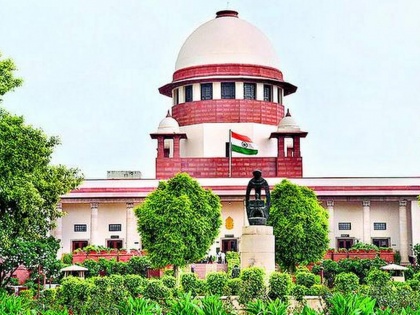EVM-VVPAT Hearing: Human Intervention Creates Problems, Says Supreme Court
By Lokmat English Desk | Published: April 16, 2024 05:22 PM2024-04-16T17:22:34+5:302024-04-16T17:22:39+5:30
In a recent hearing before the Supreme Court, petitions advocating for 100% verification of EVM votes using VVPAT slips ...

EVM-VVPAT Hearing: Human Intervention Creates Problems, Says Supreme Court
In a recent hearing before the Supreme Court, petitions advocating for 100% verification of EVM votes using VVPAT slips were discussed. Justices Sanjiv Khanna and Dipankar Datta presided over the bench and heard arguments presented by the Association for Democratic Reforms and other petitioners. During the session, the Supreme Court expressed concerns about the potential issues associated with human intervention in the voting process, highlighting drawbacks of the traditional secret ballot method.
In response to advocate Prashant Bhushan, representing the Association for Democratic Reforms (ADR), the bench recalled past challenges with ballot papers, emphasizing their experiences from past decades. Bhushan referenced incidents of booth capturing, while the bench stressed broader issues beyond mere malpractices, citing historical challenges with ballot papers. Bhushan pointed out Germany's return to paper ballots as an example, suggesting a similar shift for India due to concerns about EVM vulnerabilities to hacking. He proposed a system where voters receive VVPAT slips to deposit in the ballot box, emphasizing transparency and security.
Responding to Bhushan's mention of Germany, Justice Dipankar Datta inquired about the vast difference in population between Germany and India. Bhushan acknowledged this gap, reiterating his stance on EVM distrust and the need for transparent VVPAT design. Bhushan criticized the current opaque design of VVPAT slips and highlighted concerns about the source code of EVM chips, which are not disclosed to the public. The bench reiterated the challenges associated with human intervention in the voting process, emphasizing the reliability of machines over manual methods. The Supreme Court is reviewing petitions calling for a 100% count of VVPAT slips in elections, contrasting with the current practice of verifying only a random selection of five EVMs through VVPAT slips.
Open in app